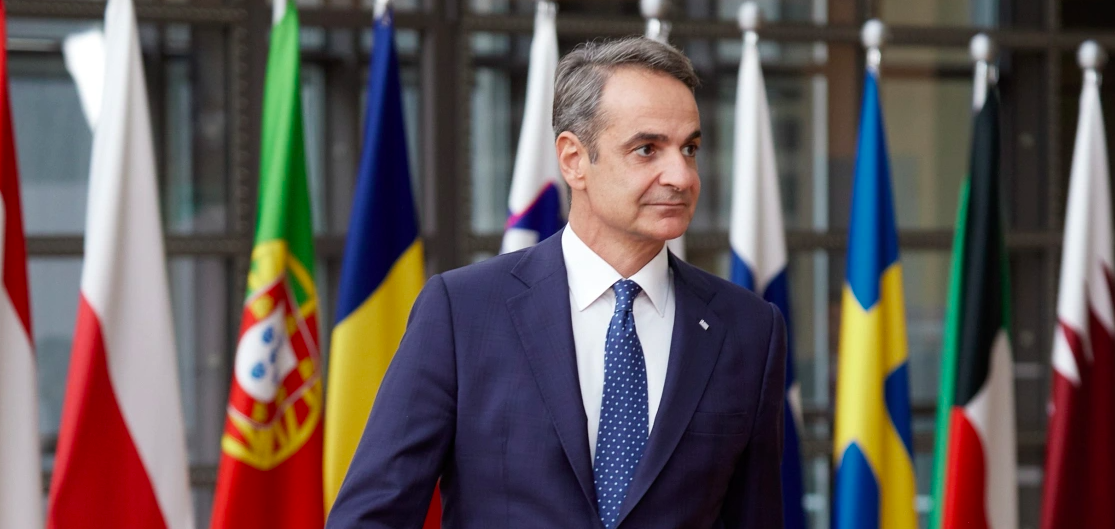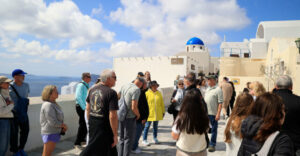The European Council meets in Brussels today and tomorrow. It’s the first summit of the new season and the agenda is “heavy”, as apart from developments in Ukraine and the Middle East, it also includes migration and the competitiveness of the European economy (Draghi report).
The debate on migration comes at a time when member states have imposed controls on the EU’s internal borders, while the situation in the Middle East is raising concerns about a new increase in flows from Lebanon.
On migration, Kyriakos Mitsotakis has repeatedly stressed that the priority now is to implement the Pact on Migration and Asylum and to support and strengthen first host countries to protect and guard their borders.
The Greek Prime Minister is expected to stress the importance of guarding the EU’s external borders, which is a key and first pillar of the Pact on Immigration and Asylum, and of supporting first host countries by all means – including with further Community funding. It is also expected to underline the importance of speeding up returns and cooperation with third countries to this end.
The debate is expected to focus on the strengthening of the return policy for persons whose asylum applications have been rejected and on possible measures, such as the return of such persons to third countries. “We will have the opportunity to focus on concrete measures to prevent irregular migration, including enhanced control of our external borders, strengthened partnerships, and enhanced return policies.”
On the issue of competitiveness, Greece advocates more investment to meet ambitious European targets, while the prime minister has underlined that the Draghi report is a bold and important document that European leaders should discuss in substance, Equally, the Prime Minister stresses that Europe cannot simultaneously achieve all the ambitious goals it has set without additional joint funding for objectives such as defence, green transition, etc.
Other issues on the agenda
EU heads of state and government will also be concerned about the war in Ukraine, the crisis in the Middle East, and energy.
As a guest of the European Council, Ukrainian President Volodymyr Zelensky will present to European leaders Ukraine’s victory plan against Russia. “We will hear from President Zelensky on his proposed victory plan and work on the next steps to build consensus around a peace initiative based on the principles of the UN Charter and international law,” outgoing European Council President Charles Michel stresses in the invitation letter to European leaders. European leaders are expected to reiterate their “unwavering” support for Ukraine: political, military and economic. In particular, financial support of 45 billion euros ($50 billion) to Ukraine will be discussed, based on the commitment the EU made last June, together with its G7 partners, to cover the country’s military, budget, and reconstruction needs.
On the Middle East crisis, European leaders are expected, according to the draft conclusions, to express their deep concern about the military escalation and the risks it will bring to the whole region. At the same time, the “27” will once again stress the need for an immediate ceasefire in Gaza and the unconditional release of the hostages. “The European Council must press hard for a de-escalation and insist on respect for international and humanitarian law”, Charles Michel stresses in his letter. European leaders are expected to condemn as “irresponsible” and “unacceptable” the recent Israeli attacks on UN peacekeepers in southern Lebanon and stress that UN staff and humanitarian workers must be protected.
The summit is also expected to discuss the issue of energy and in particular, the high prices that occurred last summer in southeastern Europe, particularly in Greece, Bulgaria, and Romania. European leaders are expected to call on the European Commission to “urgently present proposals” aimed at addressing the high prices.
Finally, the European Council will discuss various policy issues related to international relations, including the situation in Moldova and Georgia, which are facing a crucial moment in their European path.
Ask me anything
Explore related questions





